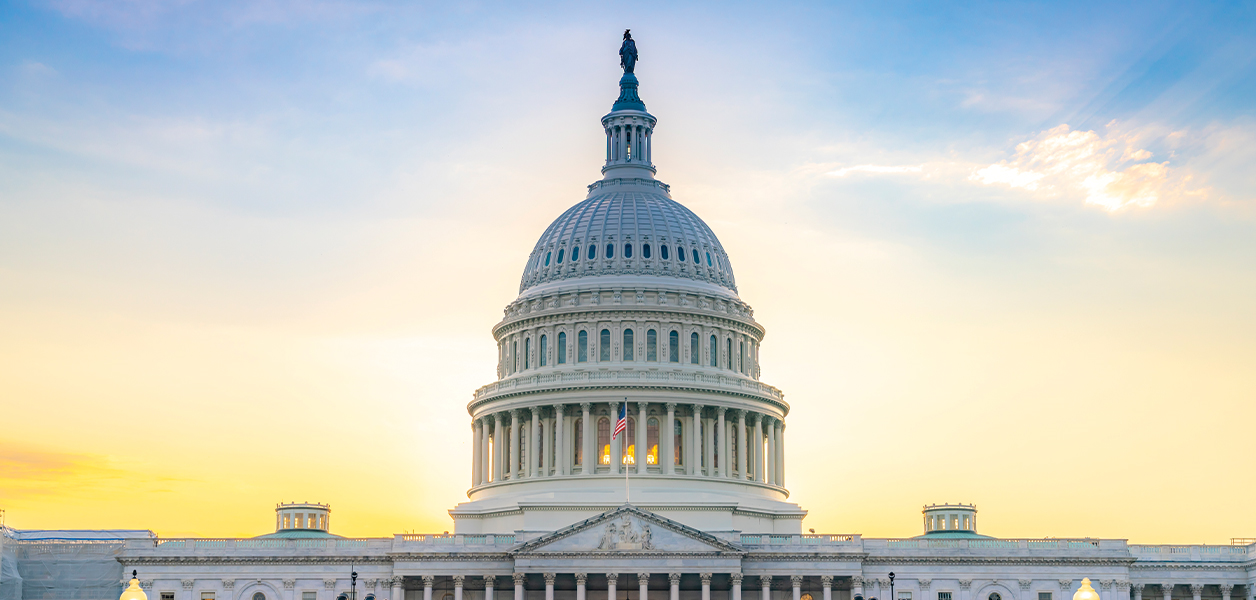Join NRCA webinar to learn how the One Big Beautiful Bill affects your business
On Aug. 6, join NRCA’s government relations team for an in-depth webinar regarding what the One Big Beautiful Bill Act means for the roofing industry. This webinar will provide an overview of key provisions in the recently passed reconciliation bill that address tax, immigration and workforce issues.
On July 4, the One Big Beautiful Bill Act (H.R. 1) was signed into law by President Trump. H.R. 1 extends and makes permanent many provisions from the Tax Cuts and Jobs Act of 2017, P.L. 115-97, while adding new provisions, including deductions to eliminate income taxes on certain overtime pay and expanding the use of 529 educational savings accounts and the Pell Grant program to training and credentialing. This legislation also contains provisions related to defense, border security and immigration while unfortunately eliminating many clean energy tax incentives. To review how these changes could affect your business, view NRCA’s summary of the major provisions.
House members introduce bipartisan immigration proposal
Rep. Maria Salazar (R-Fla.) and Rep. Veronica Escobar (D-Texas) introduced the Dignity Act of 2025 (H.R. 4393), bipartisan legislation to enhance border security and make major reforms to the immigration system. The bill would bolster border security capabilities; reform the current asylum processing system; phase in use of E-Verify for all employers; and allow long-term undocumented immigrants to transition to lawful permanent resident status. The Dignity Program established by the bill provides the opportunity for individuals with Temporary Protected Status; those eligible for the Deferred Action for Childhood Arrivals program; and qualifying undocumented immigrants in the U.S. since before Jan. 1, 2021, with the opportunity to earn lawful permanent status through work experience, military service or higher education. It will also provide new resources for expanded workforce training, apprenticeships and other educational opportunities for U.S. workers. The bill is fully funded by restitution payments and application fees made by participants and does not use taxpayer funding.
The legislation demonstrates significant bipartisan support with 10 Republicans and 10 Democrats as original co-sponsors and enjoys the support of numerous business, faith-based, immigration and community organizations. View more information about the bill and NRCA’s letter of support.
U.S. reaches trade deal with the European Union
On July 28, President Trump announced a trade deal with the European Union, resetting the economic relationship between two of the world’s largest economies. The EU has agreed to purchase $750 billion in U.S. energy and make new investments of $600 billion in the U.S. by 2028. Also, the EU has agreed to a U.S. tariff rate of 15% on most items, including on autos and auto parts, pharmaceuticals and semiconductors, but tariffs on steel, aluminum and copper will remain at 50%. Additionally, the U.S. and the EU announced their commitment to strengthen economic security alignment to enhance supply chain resilience and innovation. The two sides have stated they will take further actions to address non-market policies of third parties, as well as cooperate on inbound and outbound investment reviews, export controls and duty evasion.
Deadline of Aug. 1 looms for additional tariff adjustments while Brazil and copper changes are announced
As a reminder, without additional trade agreements such as those reached with the European Union and earlier with the United Kingdom, Japan, Indonesia, Vietnam, South Korea and the Philippines, on Aug. 1, new reciprocal tariff rates are set to take effect. The countries include Bangladesh (35%); Bosnia and Herzegovina (30%); Cambodia (36%); Kazakhstan (25%); Laos (40%); Malaysia (25%); Myanmar (40%); Serbia (35%); South Africa (30%); Thailand (36%); and Tunisia (25%).
Additionally, the Secretary of Commerce has initiated investigations under Section 232 of the Trade Expansion Act of 1962 to determine the effects on national security of imports of the following: copper, timber and lumber, semiconductors, pharmaceuticals, trucks, critical minerals, commercial aircraft, polysilicon and unmanned aircraft systems. On July 30, President Trump said the U.S. would impose a 50% tariff on copper pipes and wiring but did not issue sweeping restrictions as expected by leaving out copper ores, concentrates and cathodes.
Finally, the U.S. Trade Representative announced initiation of a Section 301 investigation of Brazil’s trade practices and on July 30 imposed a 50% tariff on the country and added sanctions on the Supreme Court justice overseeing the criminal case against former President Jair Bolsonaro.
House Education and Workforce Committee advances labor reform legislation
The House Education and Workforce Committee approved several bills dealing with federal labor law. The first is the Save Local Business Act (H.R. 4366), legislation to clarify that an employer may be considered a joint employer in relation to an employee only if such employer directly exercises significant control over the essential terms and conditions of employment. NRCA supports this legislation to provide clarity around the definition of a joint employer, which has shifted because of regulatory changes during recent years. The second bill is the Modern Worker Empowerment Act (H.R. 1319), which would amend current laws to establish a clear test for determining whether a worker is classified as an independent contractor or employee. And finally, the Modern Worker Security Act (H.R. 1320) would create a safe harbor from certain misclassification claims for employers who voluntarily provide certain types of benefits to independent contractors.
These bills were approved on largely party-line votes, with Republicans supporting and Democrats opposing, and the debate now shifts to the full House. If any of these proposals are approved by the House, they eventually will need some level of bipartisan support to make progress in the Senate.



